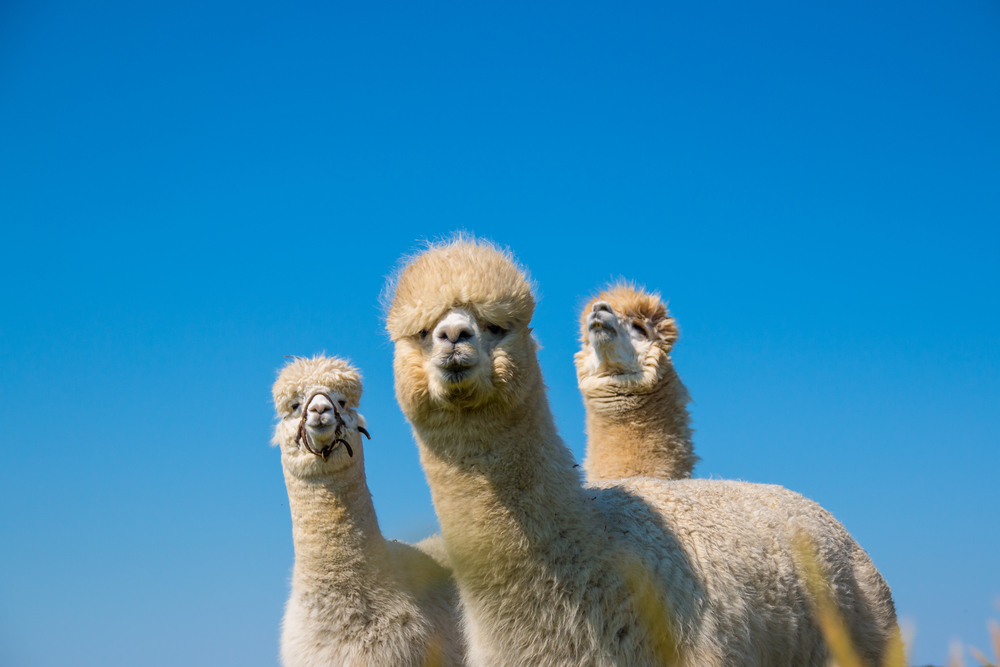

Don’t know where
to start with your
Alpaca Venture?
to start with your
Alpaca Venture?
Call now to get some sound advice!

-
© 2025 Awesome Alpacas. All Rights Reserved | Privacy Policy


When trying to stay toasty in the winter, people often debate whether alpaca wool or sheep's wool is better. Both are natural fibers that feel soft and cozy. But which one keeps you the warmest? Let us look closely at the unique qualities of alpaca wool. Then, we compare how well alpaca wool insulates.
By the end, you will know if alpaca is truly the warmer choice for cold weather.
The alpaca is an animal from the Andes mountains in South America. Alpaca wool has hollow fibers that trap air inside. Air is excellent at keeping you warm. The fibers are also denser than sheep's wool. This means body heat cannot escape easily, and cold air does not get in easily.
Plus, alpaca wool naturally repels moisture while wicking it away from your skin. This helps you stay warm even when dampness would normally chill you to the bone. For outdoor adventures or winter sports, alpaca wool has you covered.
Alpaca wool keeps you warmer than sheep's wool. A study in 2010 looked at how well alpaca and Merino sheep wool insulate heat. The study showed that alpaca wool is better at trapping warmth than sheep's wool.
The wool's thickness and density also impact its insulating abilities. For example, Icelandic wool is thicker than other sheep's wool and has lower thermal conductivity. Yet, alpaca wool still has an advantage due to its unique hollow fiber structure and natural water-repellent properties.
Are you trying to choose between alpaca wool and sheep's wool? If so, consider more than just warmth. Comfort, ease of care, and durability also matter.
Alpaca wool is warm, very durable, and easy to care for. It resists pilling and maintains its shape and texture, even with frequent wear and tear. Sheep's wool, on the other hand, can be more delicate. Alpaca wool requires careful handling to avoid damaging its texture and appearance.
Regarding comfort, alpaca wool is often compared to luxuriously soft cashmere. It is lightweight yet warm. Also, its hypoallergenic properties make it excellent for those with wool allergies or sensitive skin.
Alpaca wool is great for more than just keeping warm and cozy. In fashion, people love how soft and luxurious it feels. It also hangs nicely and has a beautiful natural shine. Designers all over use alpaca wool in their clothing lines. They make stylish, sophisticated pieces that show off how unique this fiber is.
Alpaca wool can be used for everything—warm sweaters, scarves, fancy coats, and accessories. Alpaca wool can make any outfit feel extra fancy.
The natural colors range from creamy whites to rich browns and blacks, so designers have lots of shades to choose from. Whether you like classic neutral tones or bold, bright hues, alpaca wool can create timeless, fashionable clothes that never go out of style.
Winter clothing should keep you warm. Alpaca wool wins for thermal insulation. Its fiber structure has a hollow design, which traps air – an excellent insulator. Alpaca wool fibers are also dense, preventing heat from escaping. They block cold air and repel moisture naturally. It wicks dampness from the skin, helping you stay toasty.
Some sheep's wool performs well, too. Icelandic wool is thick and insulating. However, alpaca wool is superior thanks to its fiber structure and water resistance. Alpaca excels in warmth, comfort, and durability.
To learn more about alpaca wool, visit Awesome Alpacas at our office in Monroe, North Carolina. Call 704-741-0600 to schedule an appointment today.
Sources: